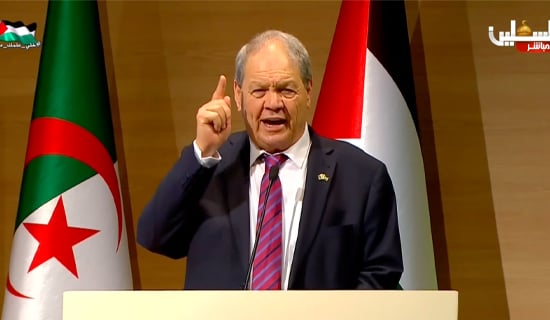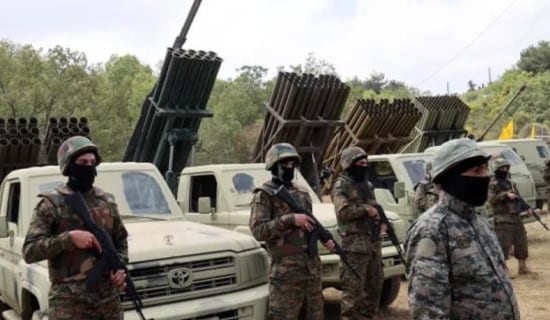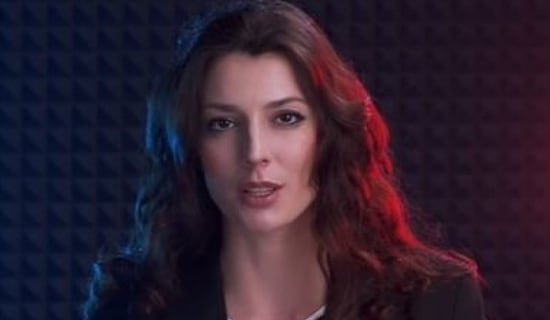Russian consultant Vitaly Shklyarov, who also worked with teams of Angela Merkel and Barack Obama, in an article, titled "No Transfer of Power", dismissed discussions among experts on available leadership options when Putin's second term expires in 2024 as most likely a waste of time. According to Shklyarov, the Kremlin itself is developing plans to avoid transition and the transfer of power.
During the years of Putin's reign, all state powers in Russia, de facto, were gradually concentrated in the hands of one person, President Putin. If 11 years ago, in 2008, the formation of the stopgap "tandem" solution where Medvedev would be president and Putin would move over to prime minister, remained possible, currently, and all the more so in 5 years' time, in 2024, this scenario would be absolutely unrealistic.
Below is Shklyarov's article, as published in the independent Russian magazine The New Times:[1]

Vitaly Shklyarov (Source: Alf.by)
A Second Center Of Power Is An Impossibility; If Officials Must Coordinate Their Actions With Two Power Centers, This Will Lead To Political Destabilization
"Back in 2008, the entire Russian elite was ready for the return of the then-popular Putin to the highest post after 4 years. That suited everyone. For the Presidential Administration, this was an introductory part of the plan for a return strategy. This acceptance was clearly articulated even by those who were more or less openly supported Medvedev's nomination for a second term.
"Presently, the situation is different. Even if we assume that in 2024 Putin will again leave presidential office, on a [similar] rotation preserving the option of a return [to the presidency], then it's quite obvious that no one is going to wait for his return in 2030 when he's 78 years old.
"Thus, it is quite unimportant what construct will be advanced to preserve Putin's informal leadership . Who replaces whom is a matter of curiosity, but hardly important– to cite [Russian political scientist] Gleb Pavlovsky.
"It might be the establishment of a new special post (following the example of neighboring Kazakhstan)[2], while assigning part of the presidential powers to it. It might also take a form of tempting Belarus[3] to 'reunite' with Russia, changing the Constitution or any other legal framework. The problem is that all those solutions require in fact creating a second center of power within the [existing] Russian power framework, even if on a temporary basis. Back in 2008 the system handled it, albeit not without problems. But that was a different Russia. It was a different economy. Ever since, the size of the system itself, as well as its corruption and inefficiency, has increased exponentially and most likely, this trend will continue in the next 5 years.
"Even now, most of the major decisions are taken by manual control on Putin's level, with insufficient preliminary evaluation of possible ramifications (examples: the ill-considered increase of the retirement age and new national projects, whose parameters now have to be adjusted).
"If officials and state corporations have to coordinate their actions, not with one, as in the past decade, but, all of a sudden, with two power centers – let's assume the mere existence of two such centers simultaneously is possible - this will inevitably lead to a political destabilization and uncertainty and the struggle for power would lead to collapse.
"This, combined with the fact that no one will believe in Putin's 2030 return, will lead to a situation where as soon as he leaves office in 2024 he will start losing real power sharply to the second power center, whatever the nature of that center. The presidential administration cannot fail to understand that. It would be suicide.
The Impossibility Of Succession; The Russian Population Has Generally Got Used That Putin Is 'Forever'
"The second reason why Putin can't just leave stems from the first one: power it not simply concentrated in presidential hands, it is concentrated specifically in President Vladimir Putin's hands. It is not totally factual that Putin controls and influences the transition process, but inside the current Russian leader's inner circle, there is no person whom this inner circle is prepared to accept as leader – in the same way that is accepts Putin moment. Any successor – be he Prime Minister Medvedev, Moscow's mayor Sobyanin, or Duma Speaker Volodin – will inevitably encounter resistance and probably sabotage from part of Putin's 'inner circle'. Then, there will be a coup.
"Even more important is the fact that, although Putin's rating has declined remarkably over the past year, amongst those surrounding him and in the country there is no [other] popular politician. Moreover, there is not even one strong [alternative] power center. Even the [Russian] Minister of Foreign Affairs Lavrov and the [Russian] Minister of Defense Shoigu strikingly defer to Putin, while Medvedev has become one of the most unpopular political figures in the country.
"Of course, the Russian government, which fully controls the election process, can provide the desired result to almost anyone, but, in reality, the successor's unpopularity will not go away, moreover for some elites, it will become an additional reason for sabotaging his decisions. If, however, towards the next elections, a successor commanding popular support will appear anyway, then for him the popular love will be a one further argument why the high popular support he will be pushed to oust Putin, whom the country has tired of, from real powers.
"Thus, it can be argued that almost any scenario involving Putin leaving the presidency in 2024 bears, both for Putin himself and for the Russian authorities as a whole, much greater risks than the preservation of the status quo.
"The regime may still survive by maintaining the status quo, regardless of whether Putin is living or later. The Russian population has generally gotten accustomed to the fact that Putin is 'forever,' and, unless a large-scale economic crisis erupts, it will be rather indifferent to his next 're-election'.
"Therefore, as we approach 2024, we will probably see how the issue of 'let's not change anything' in any of its political-legal aspect and creative implementation, will increasingly take center stage in Russia."
[1]Newtimes.ru, May 31, 2019.
[2] See MEMRI Special Dispatch No. 7952, "Russian Policy Expert: A Dress Rehearsal For The Transfer Of Power In Russia Is Taking Place Now In Astana, Kazakhstan, With President Nazarbayev's Resignation", March 21, 2019.
[3] See MEMRI Special Dispatch No. 7842, "Russia's Orbit – Belarus President Lukashenko: The Issue Of Unifying Belarus With Russia Is Not On The Current Agenda", January 13, 2019.








